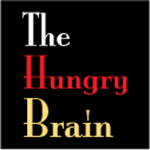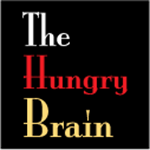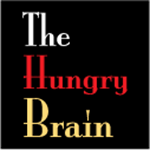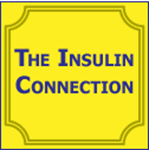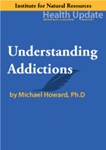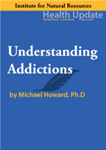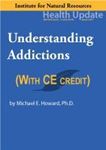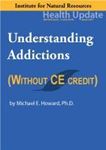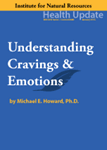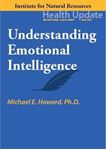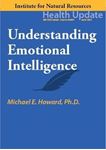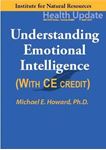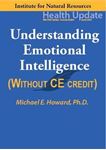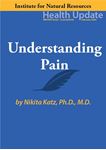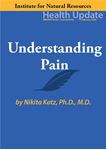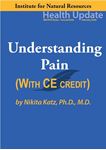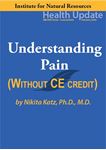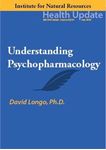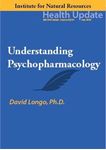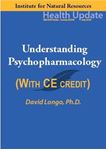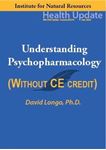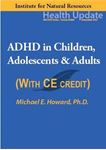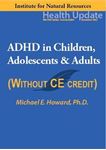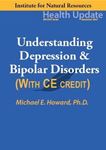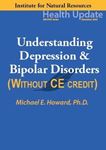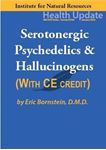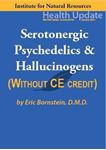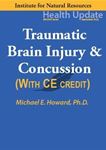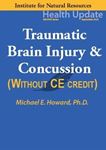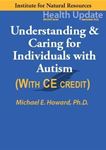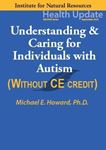You have no items in your shopping cart.
Brain Science
The Hungry Brain
The Hungry Brain explores new discoveries about the brain`s hunger for pleasure and calories-the so-called "irresistable" foods - and how one can control temptation. The book discusses the latest scientific findings about nutrients that speed memory processing and protect against Alzheimer`s disease - including a brain homework and a grocery list to make it happen!
$40.00
The Hungry Brain - EBOOK
The Hungry Brain explores new discoveries about the brain`s hunger for pleasure and calories-the so-called "irresistable" foods - and how one can control temptation. The book discusses the latest scientific findings about nutrients that speed memory processing and protect against Alzheimer`s disease - including a brain homework and a grocery list to make it happen!
$30.00
The Hungry Brain - EBOOK only *NO CE
The Hungry Brain explores new discoveries about the brain`s hunger for pleasure and calories-the so-called "irresistable" foods - and how one can control temptation. The book discusses the latest scientific findings about nutrients that speed memory processing and protect against Alzheimer`s disease - including a brain homework and a grocery list to make it happen!
$20.00
The Insulin Connection
Describes the normal functions of insulin. Discusses what it means to be “resistant” to insulin. Lists ways to determine whether a person is insulin resistant. Outlines consequences of insulin resistance. Identifies steps to improve insulin sensitivity or reverse insulin resistance.
$30.00
Understanding Addictions - DVD - 6 Hours (w/Home-study exam)
Describes the main brain functions that contribute to addictive behavior. Explains the major ways that addiction changes the brains of addicts. Describes how drugs mimic and alter neurotransmitters which provoke the psychological effects of addiction. Explains the difference between drug dependence, tolerance, and addiction. Describes the clinical consequences of addiction to food, opioids, street drugs, and alcohol. Lists and compare the major treatment options for legal and illegal drug addictions. Describes how the information in this course can be utilized to improve patient care and patient outcomes. Describes, for this course, the implications for dentistry, mental health, and other health professions.
$83.00
Understanding Addictions - DVD only *NO CE - 6 hours
Describes the main brain functions that contribute to addictive behavior. Explains the major ways that addiction changes the brains of addicts. Describes how drugs mimic and alter neurotransmitters which provoke the psychological effects of addiction. Explains the difference between drug dependence, tolerance, and addiction. Describes the clinical consequences of addiction to food, opioids, street drugs, and alcohol. Lists and compare the major treatment options for legal and illegal drug addictions. Describes how the information in this course can be utilized to improve patient care and patient outcomes. Describes, for this course, the implications for dentistry, mental health, and other health professions.
$69.00
Understanding Addictions - Streaming Video - 6 Hours (w/Home-study exam)
Describes the main brain functions that contribute to addictive behavior. Explains the major ways that addiction changes the brains of addicts. Describes how drugs mimic and alter neurotransmitters which provoke the psychological effects of addiction. Explains the difference between drug dependence, tolerance, and addiction. Describes the clinical consequences of addiction to food, opioids, street drugs, and alcohol. Lists and compare the major treatment options for legal and illegal drug addictions. Describes how the information in this course can be utilized to improve patient care and patient outcomes. Describes, for this course, the implications for dentistry, mental health, and other health professions.
$83.00
Understanding Addictions - Streaming Video only *NO CE - 6 hours
Describes the main brain functions that contribute to addictive behavior. Explains the major ways that addiction changes the brains of addicts. Describes how drugs mimic and alter neurotransmitters which provoke the psychological effects of addiction. Explains the difference between drug dependence, tolerance, and addiction. Describes the clinical consequences of addiction to food, opioids, street drugs, and alcohol. Lists and compare the major treatment options for legal and illegal drug addictions. Describes how the information in this course can be utilized to improve patient care and patient outcomes. Describes, for this course, the implications for dentistry, mental health, and other health professions.
$69.00
Understanding Cravings and Emotions - DVD only *NO CE - 6 hours
Stress, anxiety, depression, dementia, sleep disorders, and a host of medications can wreak havoc on patients' appetite. Cravings for salt, sugar, and fat can easily undermine even the best efforts to manage hypertension, diabetes, and weight. This seminar on Understanding Cravings and Emotions is designed to help Health Professionals gain insight into this complex clinical and social dilemma. Health Professionals will also appreciate practical suggestions for creating healthier routines, using specific foods, meals, and snacks to stabilize mood, and learning how to recognize emotional eating in patients.
$69.00
Understanding Emotional Intelligence - DVD - 6 Hours (w/Home-study exam)
Outlines the characteristics of emotions and their importance in human social behavior. Lists the five major domains of emotional intelligence. Explains the effects of emotional intelligence and social intelligence on love, happiness, and work. Describes strategies to improve self-awareness, self-management, social awareness, and relationship skills. Explains how emotional intelligence impacts mental disorders, chronic illness, provider-patient relationships, and stress management. Outlines how the information in this course can be utilized to improve patient care and patient outcomes. Describes, for this course, the implications for dentistry, mental health, and other health professions.
$83.00
Understanding Emotional Intelligence - DVD only *NO CE - 6 hours
Outlines the characteristics of emotions and their importance in human social behavior. Lists the five major domains of emotional intelligence. Explains the effects of emotional intelligence and social intelligence on love, happiness, and work. Describes strategies to improve self-awareness, self-management, social awareness, and relationship skills. Explains how emotional intelligence impacts mental disorders, chronic illness, provider-patient relationships, and stress management. Outlines how the information in this course can be utilized to improve patient care and patient outcomes. Describes, for this course, the implications for dentistry, mental health, and other health professions.
$69.00
Understanding Emotional Intelligence - Streaming Video - 6 Hours (w/Home-study exam)
Outlines the characteristics of emotions and their importance in human social behavior. Lists the five major domains of emotional intelligence. Explains the effects of emotional intelligence and social intelligence on love, happiness, and work. Describes strategies to improve self-awareness, self-management, social awareness, and relationship skills. Explains how emotional intelligence impacts mental disorders, chronic illness, provider-patient relationships, and stress management. Outlines how the information in this course can be utilized to improve patient care and patient outcomes. Describes, for this course, the implications for dentistry, mental health, and other health professions.
$83.00
Understanding Emotional Intelligence - Streaming Video only *NO CE - 6 hours
Outlines the characteristics of emotions and their importance in human social behavior. Lists the five major domains of emotional intelligence. Explains the effects of emotional intelligence and social intelligence on love, happiness, and work. Describes strategies to improve self-awareness, self-management, social awareness, and relationship skills. Explains how emotional intelligence impacts mental disorders, chronic illness, provider-patient relationships, and stress management. Outlines how the information in this course can be utilized to improve patient care and patient outcomes. Describes, for this course, the implications for dentistry, mental health, and other health professions.
$69.00
Understanding Pain - DVD - 6 Hours (w/Home-study exam)
Lists the neurologic processes causing pain and suffering and the principles of pain assessment. Discusses treatment modalities for primary and secondary headaches, including migraine and rare cephalagias. Lists the “red flags” of medication abuse and approaches to reduce opioid addiction. Describes the differential diagnosis of dental vs. cervical and cervicogenic pain and the appropriate intervention for both. Lists steps involved in the diagnosis and management of spinal pain, including physical and occupation therapy. Describes how the information in this course can be utilized to improve patient care and patient outcomes. Describes for this course, the implications for nursing, dentistry, mental health, and other health professions.
$83.00
Understanding Pain - DVD only *NO CE - 6 hours
Lists the neurologic processes causing pain and suffering and the principles of pain assessment. Discusses treatment modalities for primary and secondary headaches, including migraine and rare cephalagias. Lists the “red flags” of medication abuse and approaches to reduce opioid addiction. Describes the differential diagnosis of dental vs. cervical and cervicogenic pain and the appropriate intervention for both. Lists steps involved in the diagnosis and management of spinal pain, including physical and occupation therapy. Describes how the information in this course can be utilized to improve patient care and patient outcomes. Describes for this course, the implications for nursing, dentistry, mental health, and other health professions.
$69.00
Understanding Pain - Streaming Video - 6 Hours (w/Home-study exam)
Lists the neurologic processes causing pain and suffering and the principles of pain assessment. Discusses treatment modalities for primary and secondary headaches, including migraine and rare cephalagias. Lists the “red flags” of medication abuse and approaches to reduce opioid addiction. Describes the differential diagnosis of dental vs. cervical and cervicogenic pain and the appropriate intervention for both. Lists steps involved in the diagnosis and management of spinal pain, including physical and occupation therapy. Describes how the information in this course can be utilized to improve patient care and patient outcomes. Describes for this course, the implications for nursing, dentistry, mental health, and other health professions.
$83.00
Understanding Pain - Streaming Video only *NO CE - 6 hours
Lists the neurologic processes causing pain and suffering and the principles of pain assessment. Discusses treatment modalities for primary and secondary headaches, including migraine and rare cephalagias. Lists the “red flags” of medication abuse and approaches to reduce opioid addiction. Describes the differential diagnosis of dental vs. cervical and cervicogenic pain and the appropriate intervention for both. Lists steps involved in the diagnosis and management of spinal pain, including physical and occupation therapy. Describes how the information in this course can be utilized to improve patient care and patient outcomes. Describes for this course, the implications for nursing, dentistry, mental health, and other health professions.
$69.00
Understanding Psychopharmacology - DVD - 6 Hours (w/home-study exam)
This seminar will review the basic function of neurons and drug actions, followed by an explanation of neurotransmitters and their function in the brain. General prescribing strategies will be presented, as well as common psychotropic medication side-effects and medical/behavioral management of these effects. Major psychological disorders will be presented along with the specific class of psychotropic medication indicate for a diagnostic category. These categories include: psychotic/schizophrenic (neuroleptics), anxiety disorders (rescue anxiolytics), depression (antidepressants), bipolar disorders (mood stabilizers, anti-seizure medications, and second generation anti-psychotics), Alzheimer’s disease (NMDA antagonists & AChE inhibitors), attention deficit disorder & hypersomnolence (stimulants), insomnia (hypnotics), addiction, and special populations (children & the elderly). In addition to psychotropic medication treatment of mental disorders, the necessity for psychotherapy will be emphasized for each mental health disorder in terms of increased treatment efficacy, long-term outcome, and maintenance of treatment gains. The most current empirical evidence which supports the seminar material will be incorporated into CE program to assure participants become cognizant of the treatment-of-choice for specific psychological disorders
$83.00
Understanding Psychopharmacology - DVD only *NO CE - 6 hours
This seminar will review the basic function of neurons and drug actions, followed by an explanation of neurotransmitters and their function in the brain. General prescribing strategies will be presented, as well as common psychotropic medication side-effects and medical/behavioral management of these effects. Major psychological disorders will be presented along with the specific class of psychotropic medication indicate for a diagnostic category. These categories include: psychotic/schizophrenic (neuroleptics), anxiety disorders (rescue anxiolytics), depression (antidepressants), bipolar disorders (mood stabilizers, anti-seizure medications, and second generation anti-psychotics), Alzheimer’s disease (NMDA antagonists & AChE inhibitors), attention deficit disorder & hypersomnolence (stimulants), insomnia (hypnotics), addiction, and special populations (children & the elderly). In addition to psychotropic medication treatment of mental disorders, the necessity for psychotherapy will be emphasized for each mental health disorder in terms of increased treatment efficacy, long-term outcome, and maintenance of treatment gains. The most current empirical evidence which supports the seminar material will be incorporated into CE program to assure participants become cognizant of the treatment-of-choice for specific psychological disorders
$69.00
Understanding Psychopharmacology - Streaming Video - 6 Hours (w/home-study)
This seminar will review the basic function of neurons and drug actions, followed by an explanation of neurotransmitters and their function in the brain. General prescribing strategies will be presented, as well as common psychotropic medication side-effects and medical/behavioral management of these effects. Major psychological disorders will be presented along with the specific class of psychotropic medication indicate for a diagnostic category. These categories include: psychotic/schizophrenic (neuroleptics), anxiety disorders (rescue anxiolytics), depression (antidepressants), bipolar disorders (mood stabilizers, anti-seizure medications, and second generation anti-psychotics), Alzheimer’s disease (NMDA antagonists & AChE inhibitors), attention deficit disorder & hypersomnolence (stimulants), insomnia (hypnotics), addiction, and special populations (children & the elderly). In addition to psychotropic medication treatment of mental disorders, the necessity for psychotherapy will be emphasized for each mental health disorder in terms of increased treatment efficacy, long-term outcome, and maintenance of treatment gains. The most current empirical evidence which supports the seminar material will be incorporated into CE program to assure participants become cognizant of the treatment-of-choice for specific psychological disorders
$83.00
Understanding Psychopharmacology - Streaming Video only *NO CE - 6 hours
This seminar will review the basic function of neurons and drug actions, followed by an explanation of neurotransmitters and their function in the brain. General prescribing strategies will be presented, as well as common psychotropic medication side-effects and medical/behavioral management of these effects. Major psychological disorders will be presented along with the specific class of psychotropic medication indicate for a diagnostic category. These categories include: psychotic/schizophrenic (neuroleptics), anxiety disorders (rescue anxiolytics), depression (antidepressants), bipolar disorders (mood stabilizers, anti-seizure medications, and second generation anti-psychotics), Alzheimer’s disease (NMDA antagonists & AChE inhibitors), attention deficit disorder & hypersomnolence (stimulants), insomnia (hypnotics), addiction, and special populations (children & the elderly). In addition to psychotropic medication treatment of mental disorders, the necessity for psychotherapy will be emphasized for each mental health disorder in terms of increased treatment efficacy, long-term outcome, and maintenance of treatment gains. The most current empirical evidence which supports the seminar material will be incorporated into CE program to assure participants become cognizant of the treatment-of-choice for specific psychological disorders
$69.00
ADHD in Children, Adolescents, & Adults - Streaming Video - 6 Hours (w/Home-study exam)
Describes the effects of ADHD on attention, emotional control, impulse control, and executive functions. Describes the clinical presentations of ADHD and current diagnostic criteria. Discusses the genetic, developmental, neurologic and environmental causes of ADHD. Describes the development, symptoms, and impact of ADHD as they relate to children, adolescents, and adults. identify effective ADHD treatments focused on behavior management, diet, exercise, and sleep. Discusses the stimulant and non-stimulant medications for ADHD and their effectiveness. Discusses how the recent empirical research in this course can be translated to clinical practices to improve patient care and outcome. Describes, for this course, the implications for dentistry, mental health, pharmacy, nursing, occupational, physical therapy and other healthcare professions.
$83.00
ADHD in Children, Adolescents, & Adults - Streaming Video only *NO CE - 6 hours
Describes the effects of ADHD on attention, emotional control, impulse control, and executive functions. Describes the clinical presentations of ADHD and current diagnostic criteria. Discusses the genetic, developmental, neurologic and environmental causes of ADHD. Describes the development, symptoms, and impact of ADHD as they relate to children, adolescents, and adults. identify effective ADHD treatments focused on behavior management, diet, exercise, and sleep. Discusses the stimulant and non-stimulant medications for ADHD and their effectiveness. Discusses how the recent empirical research in this course can be translated to clinical practices to improve patient care and outcome. Describes, for this course, the implications for dentistry, mental health, pharmacy, nursing, occupational, physical therapy and other healthcare professions.
$69.00
Understanding Depression & Bipolar Disorder - Streaming Video - 6 Hours (w/Home-study exam)
Explains how changes in brain chemistry and structure occur in depression and bipolar disorder. Determines how chronic stress becomes a pathway for the development of major depressive disorder. Describes the new DSM-V criteria for the diagnosis of major depressive disorder and bipolar disorder. Outlines suicide risk factors and suicide prevention strategies, including the risk for suicide in dentists. Lists the differences in symptoms and treatment of major depressive disorder and bipolar disorder. Explains the differences between Bipolar I Disorder, Bipolar II Disorder, cyclothymia, and related subtypes. Describes how the information in this course can be utilized to improve patient care and patient outcomes. Describes, for this course, the implications for dentistry, mental health, nursing, and other healthcare professions.
$83.00
Understanding Depression & Bipolar Disorder - Streaming Video only *NO CE - 6 Hours
Explains how changes in brain chemistry and structure occur in depression and bipolar disorder. Determines how chronic stress becomes a pathway for the development of major depressive disorder. Describes the new DSM-V criteria for the diagnosis of major depressive disorder and bipolar disorder. Outlines suicide risk factors and suicide prevention strategies, including the risk for suicide in dentists. Lists the differences in symptoms and treatment of major depressive disorder and bipolar disorder. Explains the differences between Bipolar I Disorder, Bipolar II Disorder, cyclothymia, and related subtypes. Describes how the information in this course can be utilized to improve patient care and patient outcomes. Describes, for this course, the implications for dentistry, mental health, nursing, and other healthcare professions.
$69.00
Serotonergic Psychedelics & Hallucinogens - Streaming Video (w/Home-study exam)- 4 hours
Lists the psychedelic and hallucinogenic drugs commonly encountered in current clinical settings. Discusses the effects of psychedelic drugs and hallucinogens on perception and judgment. Describes the clinical hallmarks of hallucinogen use such as pupillary changes, sweating, palpitations, and ataxia. Lists the short and long term effects of hallucinogenic drugs, including flashbacks and persisting perception disorder. Describes the major clinical findings in patients using Psilocybin, Mescaline, and DMT. Discusses the clinical importance of recognizing psychedelic drug use in patients seen by professionals in mental health, pharmacy, nursing, dentistry, occupational, and physical therapy.
$69.00
Serotonergic Psychedelics & Hallucinogens - Streaming Video only *NO CE - 4 hours
Lists the psychedelic and hallucinogenic drugs commonly encountered in current clinical settings. Discusses the effects of psychedelic drugs and hallucinogens on perception and judgment. Describes the clinical hallmarks of hallucinogen use such as pupillary changes, sweating, palpitations, and ataxia. Lists the short and long term effects of hallucinogenic drugs, including flashbacks and persisting perception disorder. Describes the major clinical findings in patients using Psilocybin, Mescaline, and DMT. Discusses the clinical importance of recognizing psychedelic drug use in patients seen by professionals in mental health, pharmacy, nursing, dentistry, occupational, and physical therapy.
$49.00
Traumatic Brain Injury & Concussion - Streaming Video - 6 Hours (w/Home-study Exam)
Lists the brain structures that are most vulnerable to traumatic injury. Outlines the major mechanisms of action causing brain damage after TBI. Describes the major risk factors for TBI and key preventive strategies. Outlines the assessment and management strategies for athletes who sustain concussions. Lists the main etiology, symptoms, and stages of chronic traumatic encephalopathy. Discusses the common clinical problems seen in patients with TBI, form ICU care to outpatient rehabilitation. Discusses how the information from this course can be utilized by nurses, mental health professionals, dentists, pharmacists, physical therapists, occupational therapists, dietitians, and other health professionals to improve patient care outcomes.
$83.00
Traumatic Brain Injury & Concussion - Streaming Video only *NO CE - 6 Hours
Lists the brain structures that are most vulnerable to traumatic injury. Outlines the major mechanisms of action causing brain damage after TBI. Describes the major risk factors for TBI and key preventive strategies. Outlines the assessment and management strategies for athletes who sustain concussions. Lists the main etiology, symptoms, and stages of chronic traumatic encephalopathy. Discusses the common clinical problems seen in patients with TBI, form ICU care to outpatient rehabilitation. Discusses how the information from this course can be utilized by nurses, mental health professionals, dentists, pharmacists, physical therapists, occupational therapists, dietitians, and other health professionals to improve patient care outcomes.
$69.00
Understanding & Caring for Individuals with Autism - Streaming Video - 6 Hours (w/Home-study Exam)
Describes the history and development of the concept of autism as a spectrum condition. Identifies the current DSM-5 diagnostic criteria for Autism Spectrum Disorder, several co-occurring disorders, and other similar neurodevelopmental disorders like Rett Syndrome and Fragile X. Discusses the difference between considering autism to be (a) a neurodivergent development of normal brain functions and (2) a mental disorder. Describes the remarkable heterogeneity of strengths and deficits of individuals with autism spectrum disorder, including major challenges for support and treatment. Identifies patterns of structural and functional changes in the brain in individuals with autism. Discusses the variety of evidence-based behavioral and medical treatments for Autism Spectrum Disorder. Describes how the information from this course can be utilized across health care disciplines, including dentistry, mental health, pharmacy, psychology, social work, counseling, nursing, occupational therapy, physical therapy, speech-language pathology, dietetics, and other healthcare professions to improve patient care outcomes.
$83.00
Understanding & Caring for Individuals with Autism - Streaming Video only *NO CE - 6 Hours
Describes the history and development of the concept of autism as a spectrum condition. Identifies the current DSM-5 diagnostic criteria for Autism Spectrum Disorder, several co-occurring disorders, and other similar neurodevelopmental disorders like Rett Syndrome and Fragile X. Discusses the difference between considering autism to be (a) a neurodivergent development of normal brain functions and (2) a mental disorder. Describes the remarkable heterogeneity of strengths and deficits of individuals with autism spectrum disorder, including major challenges for support and treatment. Identifies patterns of structural and functional changes in the brain in individuals with autism. Discusses the variety of evidence-based behavioral and medical treatments for Autism Spectrum Disorder. Describes how the information from this course can be utilized across health care disciplines, including dentistry, mental health, pharmacy, psychology, social work, counseling, nursing, occupational therapy, physical therapy, speech-language pathology, dietetics, and other healthcare professions to improve patient care outcomes.
$69.00

